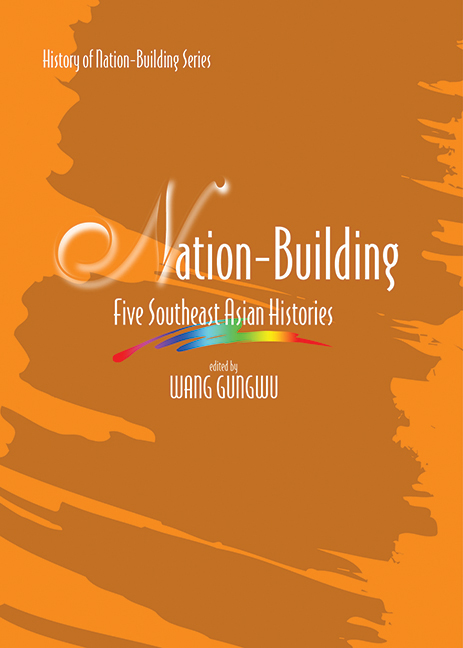Book contents
- Frontmatter
- Contents
- Preface
- The Contributors
- Chapter One Contemporary and National History: A Double Challenge
- Chapter Two Nation and State in Histories of Nation-Building, with Special Reference to Thailand
- Chapter Three Rethinking History and “Nation-Building” in the Philippines
- Chapter Four Writing the History of Independent Indonesia
- Chapter Five Ethnicity in the Making of Malaysia
- Chapter Six Historians Writing Nations: Malaysian Contests
- Chapter Seven Writing Malaysia's Contemporary History
- Chapter Eight Forging Malaysia and Singapore: Colonialism, Decolonization and Nation-Building
- Chapter Nine Nation-Building and the Singapore Story: Some Issues in the Study of Contemporary
- Chapter Ten Nation and Heritage
- Index
Chapter Four - Writing the History of Independent Indonesia
Published online by Cambridge University Press: 21 October 2015
- Frontmatter
- Contents
- Preface
- The Contributors
- Chapter One Contemporary and National History: A Double Challenge
- Chapter Two Nation and State in Histories of Nation-Building, with Special Reference to Thailand
- Chapter Three Rethinking History and “Nation-Building” in the Philippines
- Chapter Four Writing the History of Independent Indonesia
- Chapter Five Ethnicity in the Making of Malaysia
- Chapter Six Historians Writing Nations: Malaysian Contests
- Chapter Seven Writing Malaysia's Contemporary History
- Chapter Eight Forging Malaysia and Singapore: Colonialism, Decolonization and Nation-Building
- Chapter Nine Nation-Building and the Singapore Story: Some Issues in the Study of Contemporary
- Chapter Ten Nation and Heritage
- Index
Summary
Writing the story of independent Indonesia has been a more than usually difficult enterprise, and particularly so for Indonesians. Very few have undertaken it, and most who did were either in the triumphalist semi-official school of Suharto's New Order, or were foreign political scientists or journalists telling a generally disenchanted story of failure. Before Taufik Abdullah's work, I know of no professional historian, Indonesian or foreign, who set out to tell the story of independent Indonesia as a totality, except as part of semi-official projects such as the national history or fiftieth anniversary celebrations. This chapter is designed to explain why it has been so difficult.
A Rupture with the Past
Revolutions have a way of breaking continuity with the past, as is indeed their intention. The normally fuzzy transition between the contemporary domain of the social scientists and the territory of the historian becomes a sharp break when marked by a revolution. While history is passionately important for revolutionaries, once in power they tend to make things difficult for historians of anything but ancient times. The past has to preserve a powerful myth, essential to the new way in which the revolutionary state sees itself. This is true even for the French, Russian, Chinese or Vietnamese revolutions, which explicitly sought a new beginning in which science and rationality would rule, in contrast with a discredited old order of oppression, hierarchy and privilege. Indonesian revolutionaries took the same view. Tan Malaka, the most cerebral of them, declared that “the true Indonesian nation does not yet have a history except one of slavery”, while the leading professional historian of the 1950s titled both his first books in a way that consigned Indonesia's whole pre-independence past to a “feudal” category.
Indonesia's revolution however brought a further discontinuity even more profound than these other revolutions.
- Type
- Chapter
- Information
- Nation BuildingFive Southeast Asian Histories, pp. 69 - 90Publisher: ISEAS–Yusof Ishak InstitutePrint publication year: 2005

